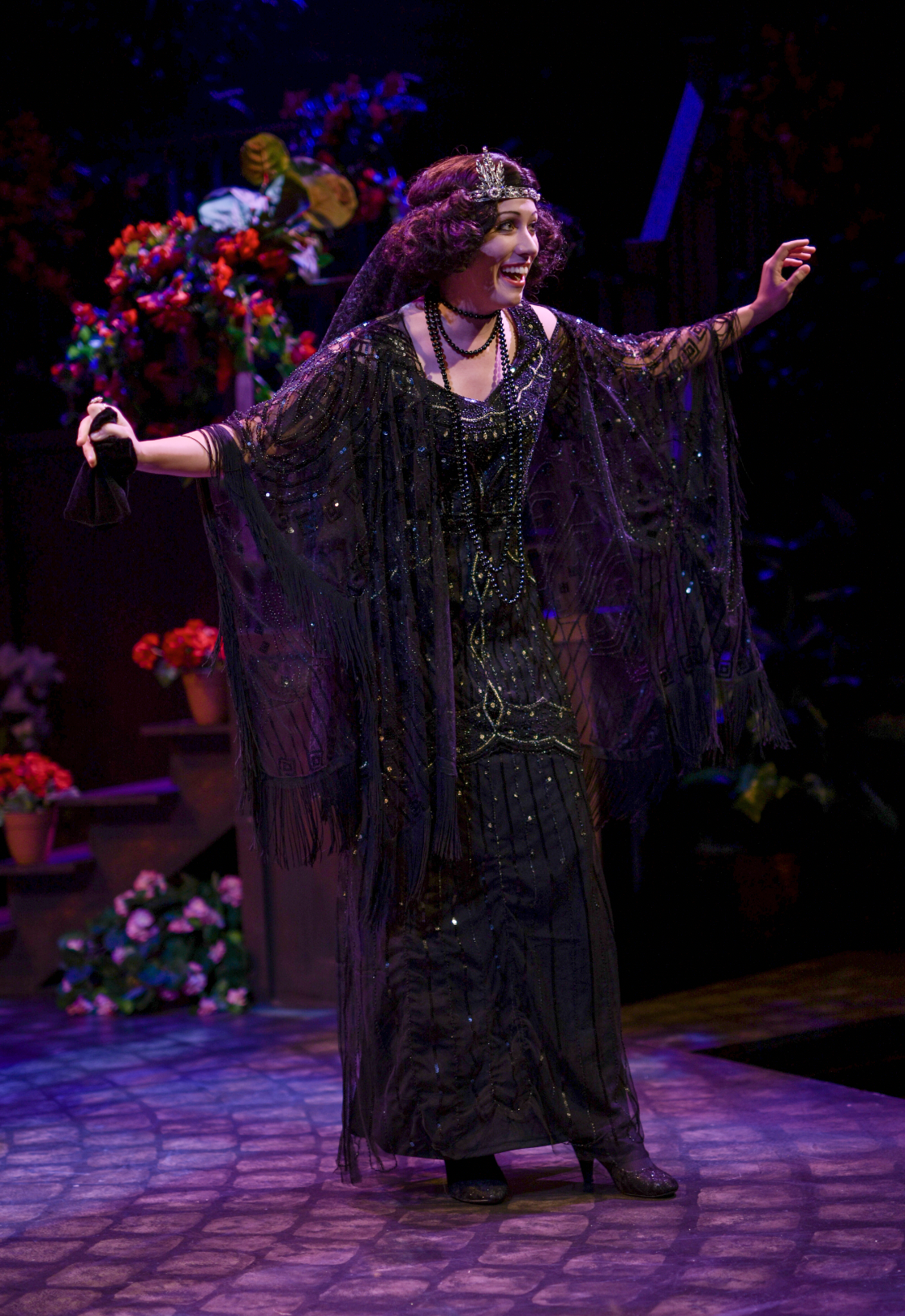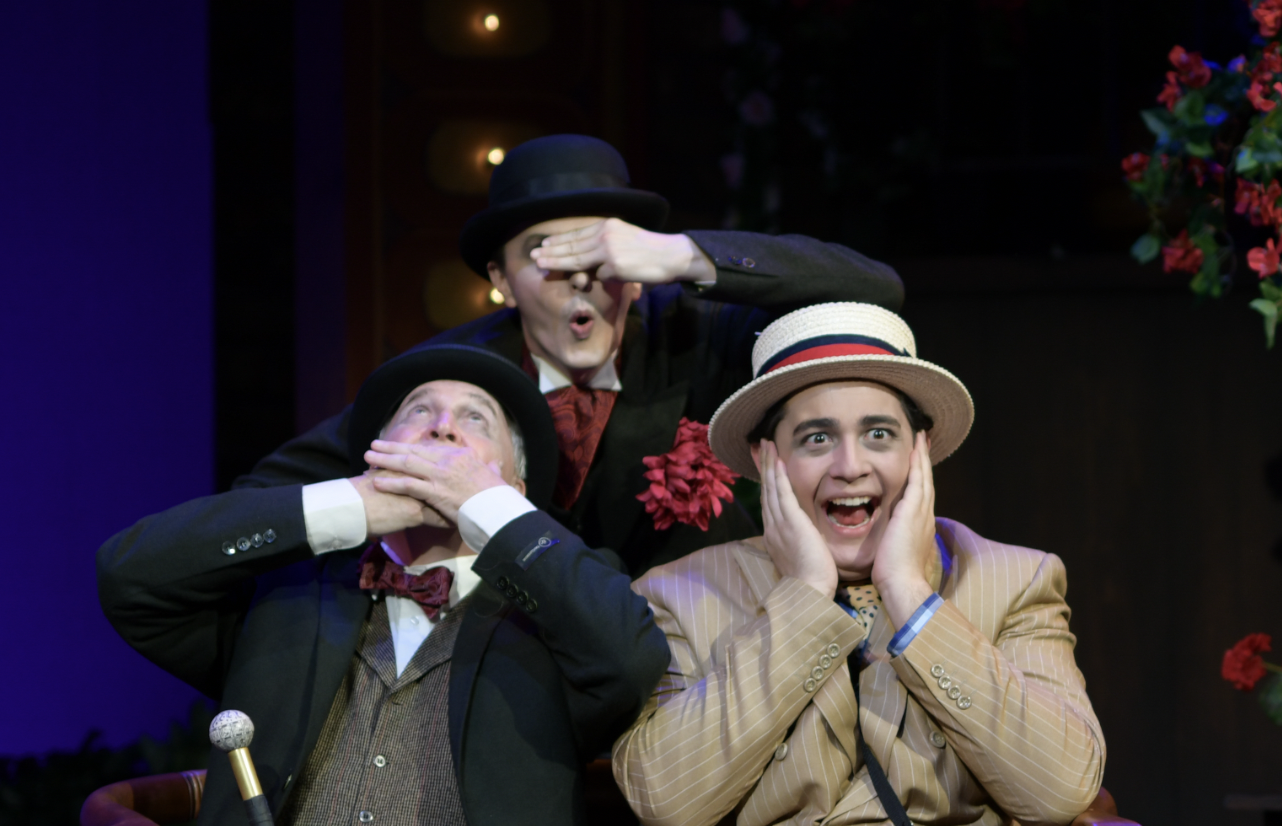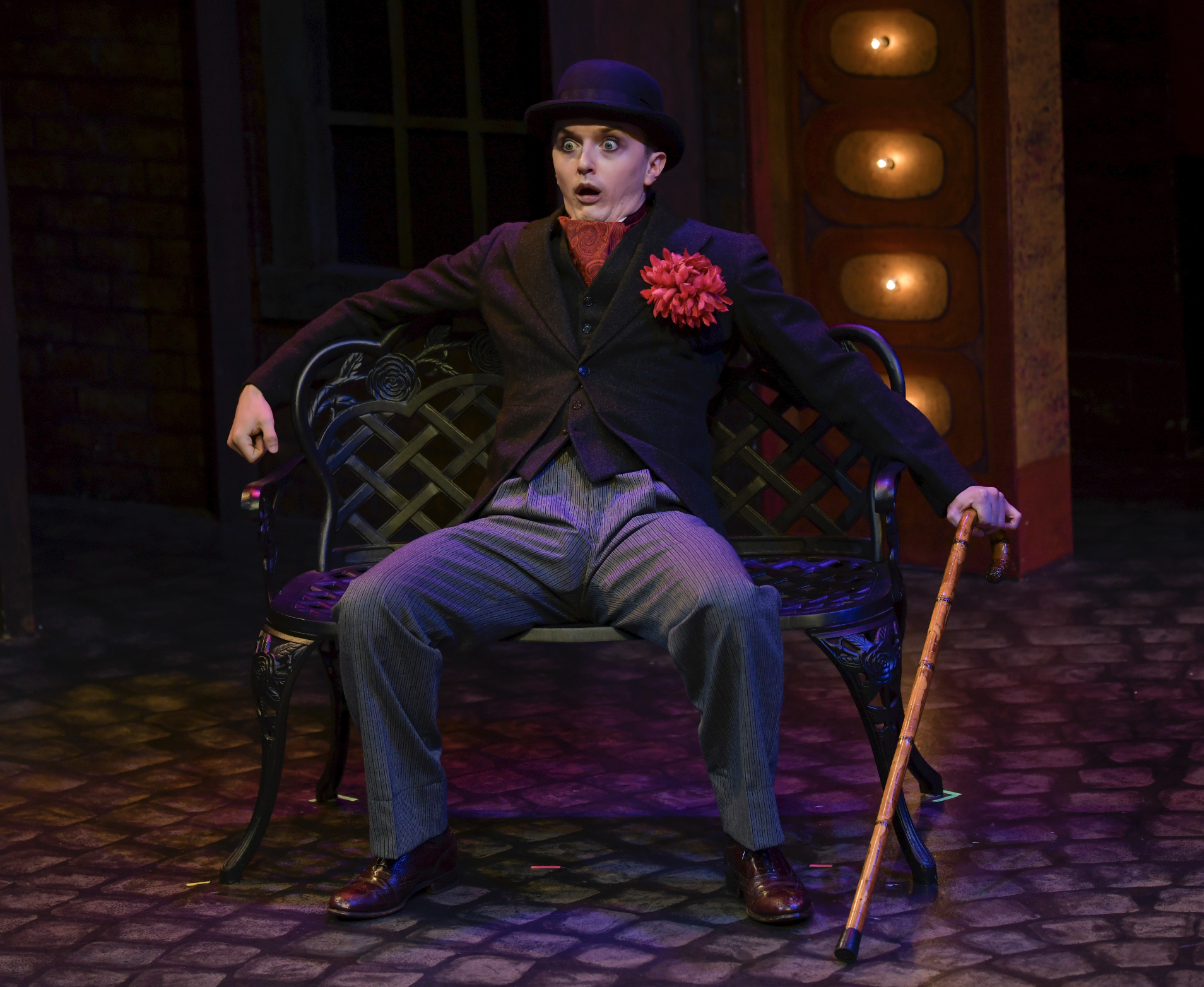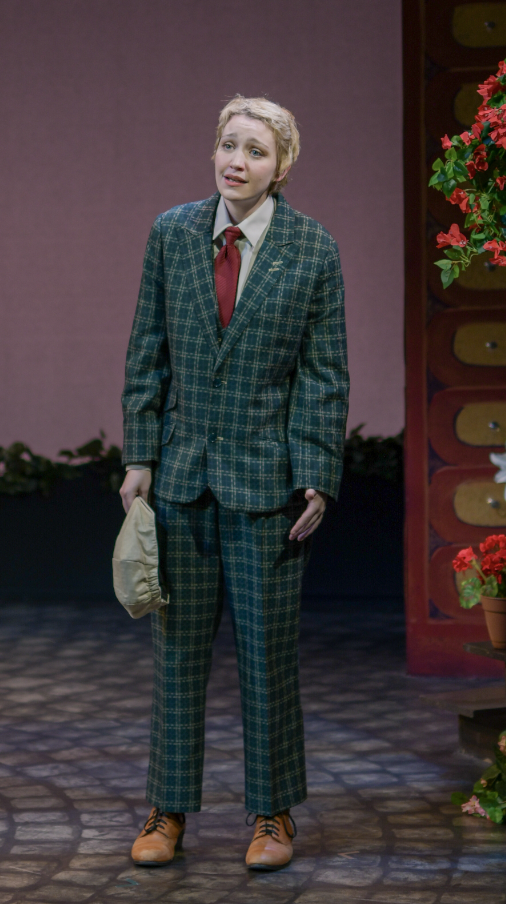Classic Theatre of Maryland’s Twelfth Night





This Shakespeare rom-com focuses on the comedy
By Jim Reiter
Classic Theatre of Maryland kicks off its 10th season with a lively and entertaining version of Shakespeare’s Twelfth Night. A fitting choice for the group formerly known as the Annapolis Shakespeare Company.
Set by director Sally Boyett in the 1920s Golden Age of Hollywood, the Bard’s story of shipwrecked twins Viola and Sebastian (Teddy Wright and Ethan Graham-Horowitz), complete with cross-dressing, mistaken identities, love, and deception, comes to life very effectively in its adopted setting.
Twelfth Night is a raucous romp through the land of Illyria (in this case, Illyria is Hollywood), where Viola is rescued, thinking the wreck has killed her brother. To protect herself, she dresses as a young man, changes her name to Cesario and becomes a page to Duke Orsino (Ryan Nicholas Cooper), who then sends her to profess his love to Lady Olivia (Anna Wiley). Olivia falls in love with Cesario, and Viola/Cesario falls in love with the duke.
But as is the case with so much of Shakespeare’s work, it is the story itself, not its setting, that is timeless and oft-imitated. Twelfth Night is a romantic comedy with an emphasis on the comedy, and while there are themes of loss and longing, it is the peppy hilarity that highlights this production. And that doesn’t happen without committed characterizations that don’t play for laughs but make us believers in the characters that are driving the comedy.
Well, Feste, (a dynamic Austin Rubinoski), of course, plays everything for laughs. He is the fool who has the freedom to comment on all the goings-on and is quite effectively played as a cross between Charlie Chaplin’s the Little Tramp and Cabaret’s Master of Ceremonies.
Meanwhile, a cast of comedic characters, Olivia’s Uncle Toby (John Pruessner), her lady-in-waiting Maria (Nancy Krebs), and Toby’s friend Andrew (Liam Gerard) join Feste in executing a practical joke on Olivia’s steward, Malvolio (a beautifully deadpan, then maniacal, Parker Cross) to make Malvolio believe that Olivia is in love with him.
Later, the confusion over the identity of the twins is revealed when Sebastian arrives, and the siblings reunite. Duke Orsino, realizing that Cesario is really Viola, asks for her hand in marriage. Sebastian and Olivia end up married as do Maria and Toby. The couples are paired off and the play ends with the fool’s song.
The CTM actors often work in front of a large movie screen at the back of the stage that features original black and white footage to help move the story along, and on a beautifully lit set that allows the action to move at a brisk pace with quickly choreographed changes of just a few furniture pieces. Original piano music evokes the era, as do nicely realized costumes.
It’s a fast-paced comedy, and while sometimes the dialogue reaches speeds that make it hard to follow Shakespeare’s 17th century words and meaning, the story and its emotions—and the comedy—remain clearly defined.
Twelfth Night: about two hours and 10 minutes with one intermission; FSaSu through Oct. 30; tickets $75 plus fees, with discounts for seniors and students. Visit www.classictheatremaryland.org or call 410-415-3513.
